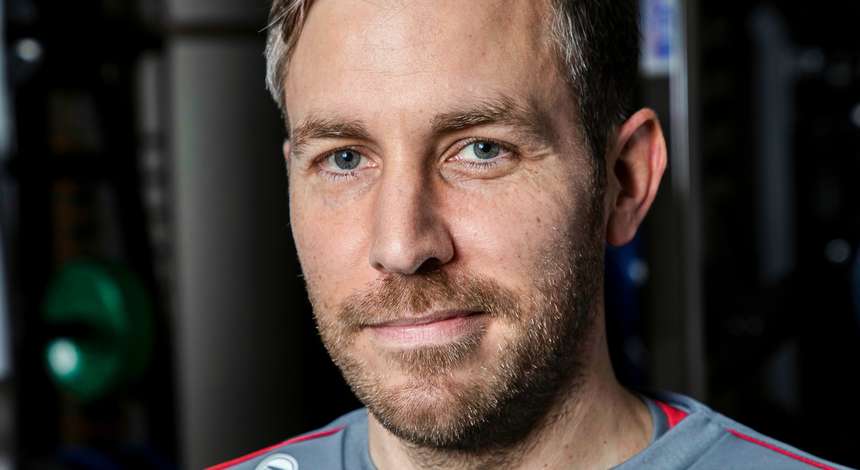
How fit are the players when they start training? Who's had a knock? How good is regeneration after peak performances? How do you ensure that psyched up players do not go to sleep full of adrenaline after a night match? Dr Malte Krüger has the answer to all these questions. The 37-year-old from Wuppertal is the head sports scientists at the Werkself in the medical section led by Dr Karl-Heinrich Dittmar.
But why do you need a qualified sports scientist if the medical section at Bayer 04 has doctors, physiotherapists, masseurs and psychologists who look after each individual player? That's down to the training philosophy of Peter Bosz. Krüger: "Coach Bosz likes it to be short and snappy." And that means for Krüger and his team keeping a constant eye on the physical stress on the players and providing feedback to the coaching staff.
When Peter Bosz only worked hard, yet focused, with the players in the morning at the preseason training camp in the summer of 2019 in Zell am See, many members of the media ask themselves: So little training? A wellness holiday in Salzburger Land? On the other hand, the BILD Zeitung headline read: "Just one training session per day: Coach Bosz explains his power plan." Yes, Peter Bosz prefers to only have one training session per day but a proper one. The players were pushed to their performance limits. "100 per cent once is better than 50 or even 60 per cent twice," according to the Bosz philosophy.
Time for regeneration
The sessions are so tough that a second training session can seriously increase the risk of injury. Bosz' training strategy, which is also used by top European clubs like Barcelona and Chelsea, not only increases stamina but also creates leeway. That gives the team more time for match tactics, video analysis and set situations – and for regeneration. And that's particularly important so that the players can be fully fit again for the next match day. But how is Bosz supposed to know when the players have reached their performance limits in training?
That's where Dr Malte Krüger comes in. At the start of the season, every player goes through three hours of tests on their hearts and kidneys. That produces a blood count that is much 'more comprehensive' than with every normal athletes. Players go on the treadmill wearing breathing masks to enable analysis of the composition of their expelled air. That reveals how the body processes oxygen, and breaks down carbohydrates and fat. Also mineral values such as vitamin D content are important. "If the vitamin D content is too low then there's a danger of muscle injuries," said Krüger . The body, muscle structure and motion sequences are also investigated. Plus stamina and fitness. Markers in the blood show the condition of a player. The glass football player.
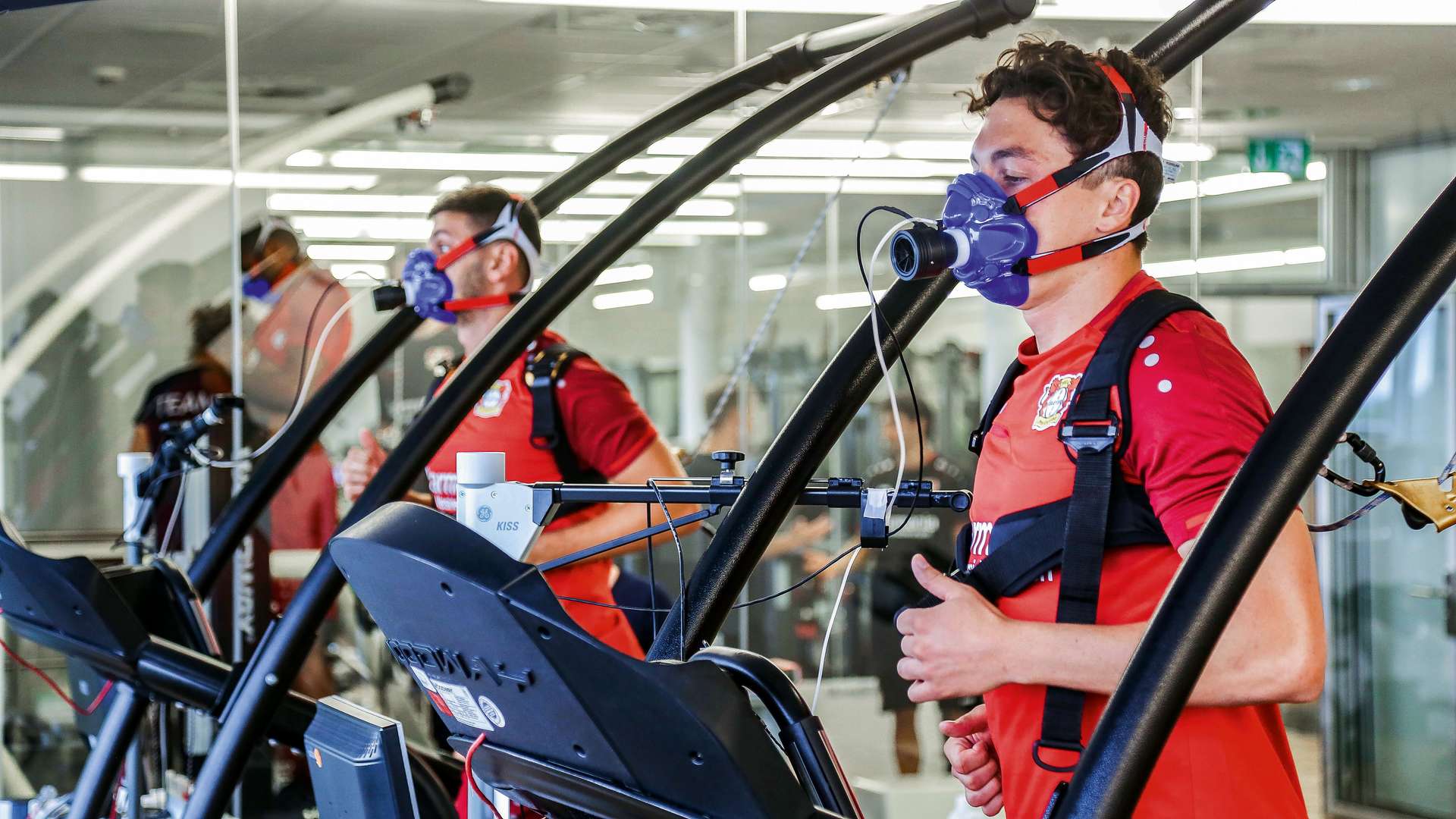
But the performance tests at the start of the season and after the winter break are just the beginning. At every training session, Krüger collects individual performance data for each player. A GPS transmitter, attached to the players’s backs, transfers performance parameters to his laptop. “How many kilometres does a player run, how many sprints and jumps does he make, how quickly does a player accelerate and slow down, plus turns and speed: We record that in real time and we can even inform the coaching staff during the drills about which players have too low and too high workloads as the latter could lead to injuries,” said Krüger.
The introduction of workload limits should increase stamina and strength and improve the fitness profile. “The higher workload tolerance, the above-threshold stimulation should ensure that players have more air and as much strength and energy after 70 minutes to help them avoid making mistakes. That increases the possibility of success on the pitch,” said Krüger in explaining the value of workload control. The fact we were talking about high-performance sport became clear at the latest when Krüger talks about squad players. “They also train during the week to be fully match-fit. If they are not used then the main workload is missing on Saturday. We have to, at least partially, catch up with the high workload of a match.” The target: The squad players should have the same rhythm of workload and regeneration.
Partnership with German Sport University
And where can you learn about workload monitoring, how to assess players so accurately and control their individual training needs quickly? At the German Sport University in Cologne of course. Krüger studied there and did his Ph.D. at the Institute for Training Science and Computer Science in Sport and he first came into contact with Bayer 04 players in 2009. The Werkself have had a partnership with the Sport University for many years and benefited from the latest insights of the scientists. Dr. Krüger became head of the university partnership with Bayer and he joined Bayer 04 Leverkusen at the start of 2019.
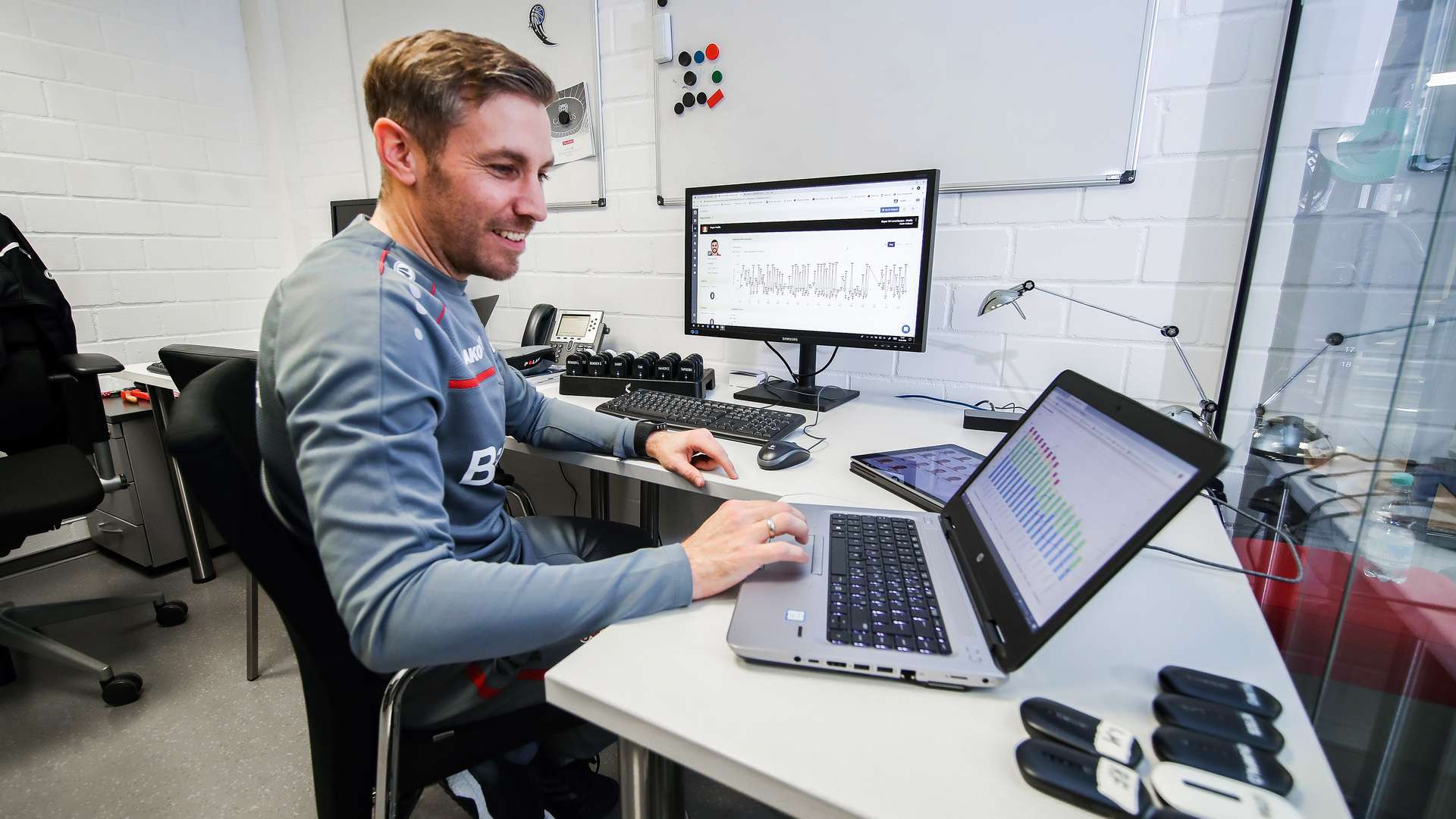
And what does a typical day’s work look like for the sports scientist? Krüger arrives at the stadium at least two hours before training starts, checks the current performance and workload data for each player and discusses them with the club doctors, physiotherapists and coaching staff. That makes it possible to set individual training workloads for each player. During the training sessions, Krüger observes the players and evaluates the training data. That allows the coaching staff to adjust workloads as required.
And now back to the initial question: What can players do if they are pumped full of adrenalin after a game and they can’t get to sleep? “They can go into the cold chamber. Our South American players don’t like it. But that makes it possible to reduce stress hormones quicker and that helps with relaxation. And sleep is the best aid for regeneration.” Good to know.
Axel Mörer
Related News

Vote now for Quansah as BL ‘Rookie of the Month’ for February
The German Football League (DFL) has announced the three candidates for Bundesliga ‘Rookie of the Month’ for February. Among the candidates is Werkself player Jarell Quansah. Fans of Bayer 04 can vote for their favourite on the Bundesliga app from now until Thursday, 5 March (23:59 CET).
Show more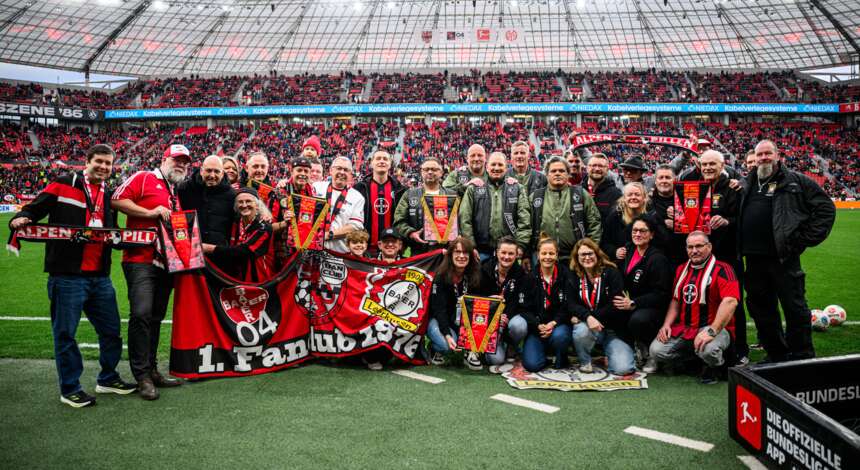
U.S. Fan Club Recognized During 50th Anniversary Celebrations
On a day that celebrated 50 years of official Bayer 04 fan clubs with festivities on the pitch during the match against FSV Mainz 05 on Saturday, New York-based Werkself Warriors were proudly represented on the field by co-founder Alex Kramm.
Show more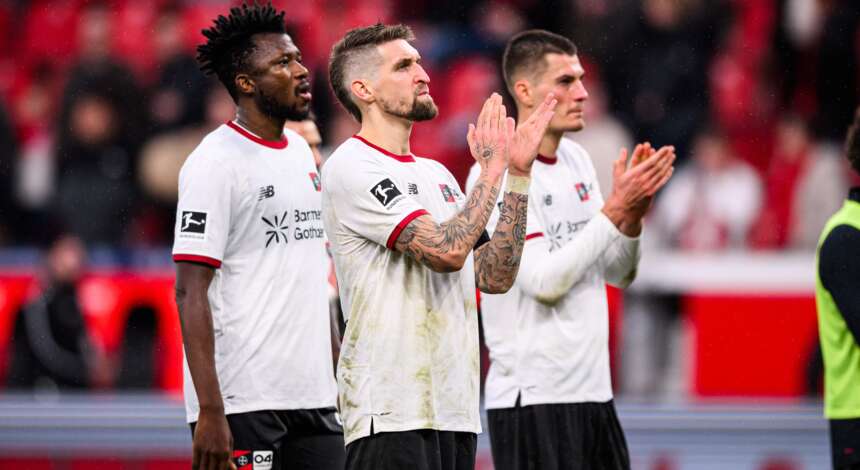
Werkself review #B04M05: ‘We lacked rhythm and intensity on the ball’
The Werkself conceded a goal at home for the first time since the beginning of January 67 minutes into the game against FSV Mainz 05 on Saturday. Jarell Quansah levelled late on for the final score of 1-1 to secure a point and avoid a first home defeat in six games. Bayer 04 were very critical of their performance after the game. The Werkself review.
Show more
Rudi recounts…: Vollborn’s March highlights
Rüdiger Vollborn has been at the club for 40 years, he holds the record number of Bundesliga appearances for the club (401) and is the only Bayer 04 player to have won both the UEFA Cup (1988) and the DFB Pokal (1993). And the Berliner stayed with the Werkself after ending his impressive playing career as he worked as a goalkeeping coach for the following nine years. Vollborn now works under the Bayer Cross as a fan liaison officer and club archivist. Since February 2021, the personalised Black and Red lexicon takes Werkself fans under the heading of 'Rudi recounts...' on a brief trip through the history of Bayer 04 every month…
Show more